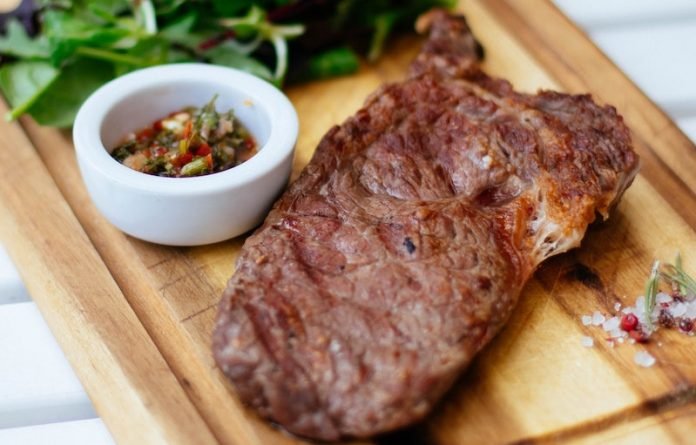
In a recent study, scientists found that eating more red meat is linked to a higher risk of breast cancer.
So far, studies have suggested no strong link between red meat intake and breast cancer.
However, most have been based on diet during midlife and later, and many lines of evidence suggest that some exposures, potentially including dietary factors, may have greater effects on the development of breast cancer during early adulthood.
In the current study, researchers examined the association between dietary protein sources in early adulthood and breast cancer risk.
They used data from 88,803 women (aged 26 to 45) in the Nurses’ Health Study II who completed a questionnaire on their diets in 1991.
Red meat items included unprocessed red meat (beef, pork, or lamb and hamburger) and processed red meat (such as hot dogs, bacon and sausage).
Poultry included chicken and turkey; fish including tuna, salmon, mackerel, sardines; legumes including beans, lentils and peas; and nuts.
During 20 years of follow-up, the team found an increase in the women’s red meat intake was linked to an increase in the risk of breast cancer.
They estimated that there would be 493 cases of breast cancer over 306,298 person-years among women with the lowest intake of red meat.
This is compared with 553 cases per 31,169 person-years among women with the highest intake.
This means that a higher intake of red meat was linked to a 22% higher risk of breast cancer overall.
Each additional serving per day of red meat was linked to a 13% increase in the risk of breast cancer (12% in younger and 8% in older women).
They also showed a lower risk of breast cancer in older women with a higher intake of poultry.
Substituting one serving per day of poultry for one serving per day of red meat was linked to a 17% lower risk of breast cancer overall and a 24% lower risk of breast cancer in older women.
Furthermore, substituting one serving per day of combined legumes, nuts, poultry, and fish for one serving per day of red meat was linked to a 14% lower risk of breast cancer overall and breast cancer in younger women.
The researchers conclude that higher red meat intake in early adulthood may be a risk factor for breast cancer, and replacing red meat with a combination of legumes, poultry, nuts and fish may reduce the risk of breast cancer.
If you care about women’s health, please read studies about common beverage that may increase death risk in breast cancer, and as seasons change, so should diet for breast cancer survivors.
For more information about women’s health, please see recent studies about drug that may fight hard-to-treat breast cancers, and results showing that healthy levels of vitamin D may boost breast cancer outcomes.
The study was conducted by Farvid MS et al and published in BMJ.
Copyright © 2022 Knowridge Science Report. All rights reserved.



